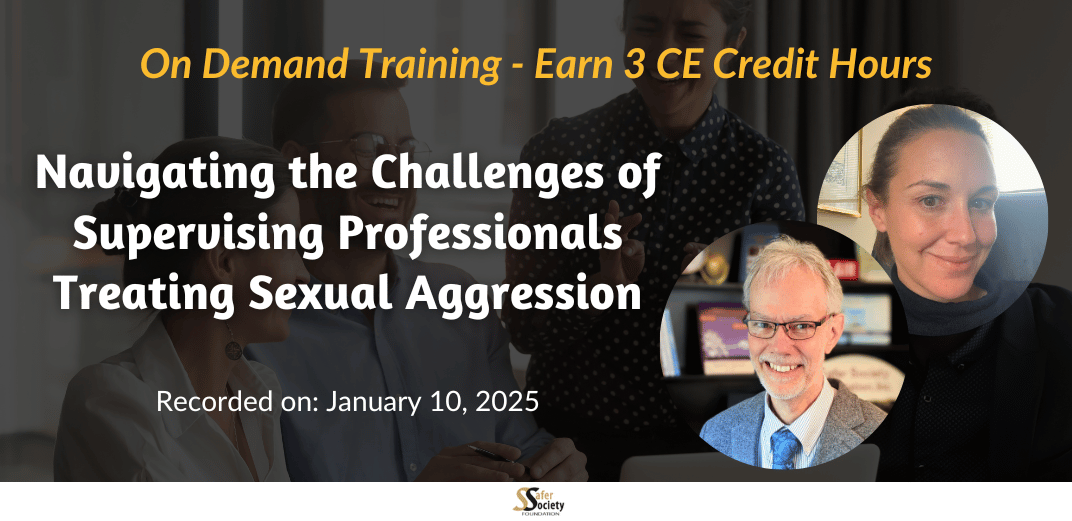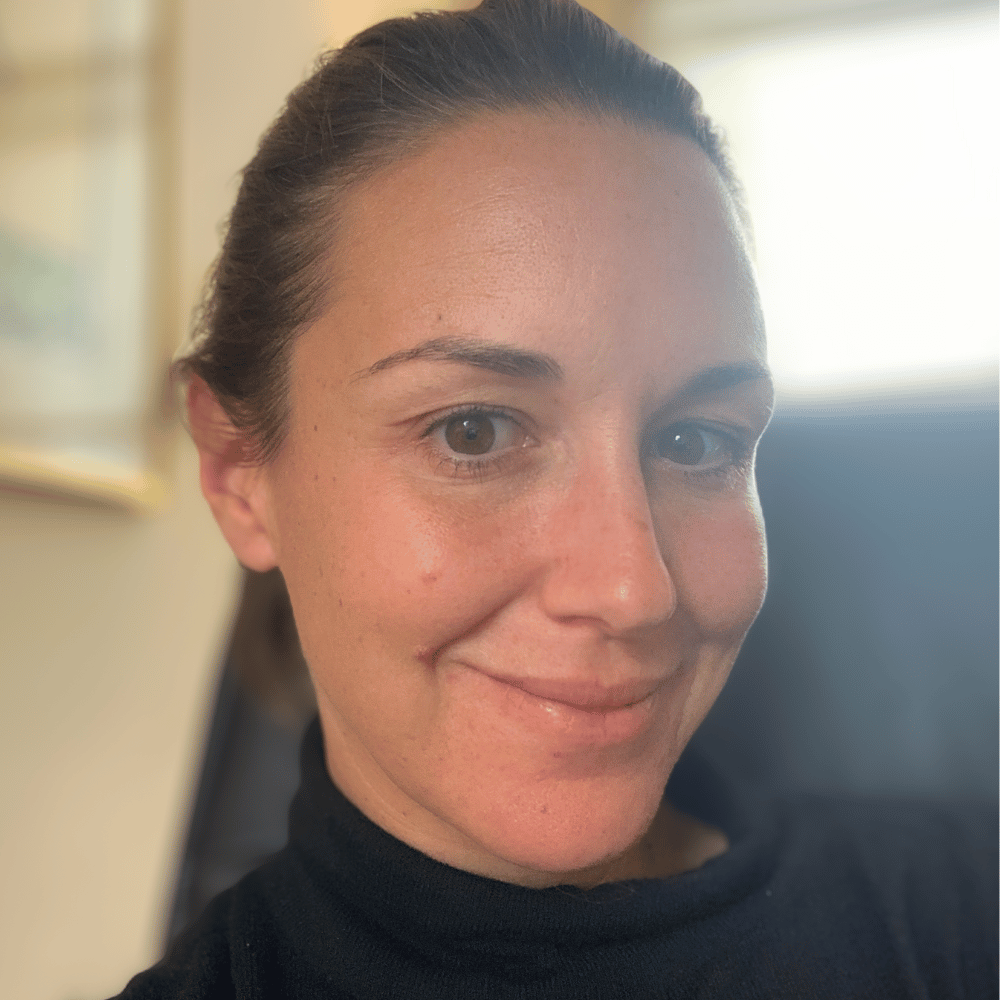
Navigating the Challenges of Supervising Professionals Treating Sexual Aggression
Already purchased an On Demand training?
Click here to access your Safer Society On-Demand Training Center account.
This is an expanded version of a previously offered non-CE training, offering more time for discussion of common supervision scenarios.
Clinical supervision is a crucial component in the field of psychotherapy. It can involve educating newer clinicians on methods and models, helping them improve their practice in different directions, providing support and encouragement, and helping supervisees manage the inevitable reactions they have to clients’ historical behaviors.
Yet many clinicians ascend to the role of supervisor based primarily on their clinical experience rather than specific supervisory training. This is particularly relevant in the specialized area of treating victims and perpetrators of sexual abuse, where ethical considerations and professional boundaries frequently present complex challenges.
 In this training, Dr. Must and Mr. Prescott begin by reviewing research on clinician development over time, offering insights on key aspects of effective clinical supervision with both novice and experienced clinicians. The presenters discuss:
In this training, Dr. Must and Mr. Prescott begin by reviewing research on clinician development over time, offering insights on key aspects of effective clinical supervision with both novice and experienced clinicians. The presenters discuss:
- Common challenges that emerge in clinical supervision of professionals treating sexual aggression
- Integrating motivational interviewing to enhance the supervisory process at all stages of professional growth
- Identifying specific skills for various clinical challenges (for example, starting a session, responding to negative emotions, introducing lesson material)
- Using feedback-informed treatment to inform supervision as well as treatment processes and client outcome
- Addressing barriers to professional development, including self-assessment bias
- The qualities of effective professionals and those who make significant improvements
- Activities for use in supervision sessions
The training also focuses on supervisory approaches to guiding clinicians through the process of supporting clients through various stages of change. For example, newer clinicians may face challenges with “imposter syndrome,” while more experienced practitioners may be more reluctant to ask for help. Additionally, the training addresses techniques for fostering supervisee compassion when working with clients who can be difficult to work with. Dr. Must and Mr. Prescott use role plays to demonstrate skills, with a particular emphasis on leveraging feedback to improve the clinical supervision experience.
Dr. Must and Mr. Prescott’s training provides supervisors with the tools and knowledge necessary to excel in their roles within the field, ultimately contributing to improved client care and clinician development.
1) Describe common supervisory themes when working with people who have sexually abused
2) Elicit supervisee feedback to keep supervision on track
3) Use motivational interviewing skills to explore and resolve supervisee ambivalence
4) Use the stages of change model can be employed in clinical supervision
5) Explain how to stay focused on the goal of client change and avoid collusion with frustrated clinicians
Audience
This training is for professionals who provide clinical supervision to those practitioners working with clients who have sexual abused others.
Content Level
Disclosure
Continuing Education Approval
American Psychological Association (APA)
Safer Society Foundation, Inc. is approved by the American Psychological Association (APA) to sponsor continuing education for psychologists. Safer Society Foundation, Inc. maintains responsibility for this program and its content.
Who's Presenting

Shoshanna Must, PhD
Shoshanna Must is a full-time practitioner and Clinical Director for New York City office of Empire State Forensics. She is also on the board of the New York State Association for the Treatment of Sexual Abusers (NYSATSA), and an active member of the City Bar Working group which is dedicated to registration reform. She is also the author (with Gretchen Sofocleous, Ph.D.) of a chapter on challenges related to pregnancy in the book, Women Working in Criminal Justice: A Guidebook for Navigating Professional Challenges, by Laura Jakul and Bobbi Walling and published by Safer Society.

David Prescott, LICSW, ATSA-F
A mental health practitioner of 40 years, David Prescott is the Director of the Safer Society Continuing Education Center. He is the author and editor of 25 books in the areas of understanding and improving services to at-risk clients. He is best known for his work in the areas of understanding, assessing, and treating sexual violence and trauma. Mr. Prescott is the recipient of the 2014 Distinguished Contribution award from the Association for the Treatment and Prevention of Sexual Abuse (ATSA), the 2018 recipient of the National Adolescent Perpetration Network’s C. Henry Kempe Lifetime Achievement award, and the 2022 recipient of the Fay Honey Knopp Award from the New York State Alliance for the Prevention of Sexual Abuse and New York State ATSA. He also served as ATSA President in 2008-09. Mr. Prescott currently trains and lectures around the world. His published work has been translated into Japanese, Korean, German, French, Polish, and Southern Tutchone. He has served on the editorial boards of four scholarly journals.
